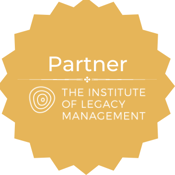Help & Advice for Legacy Professionals
If you are new to legacy management, it can feel quite daunting. But the most important thing to remember is that you are not alone and that there is a lot of help and support available. Smee & Ford have close links with The Institute of Legacy Management who provide a wide range of help and support for those starting out in the profession. We recommend contacting the ILM directly for any advice on handling sensitive communications to executors and best practice.
Introducing The Institute of Legacy Management (ILM)

Smee & Ford are pleased to partner with the Institute of Legacy Management (ILM), a membership organisation for legacy professionals which offers help and support to all those involved in legacy management. As well as training and events, they also offer free advice on their website, including Good Practice Guidance. This Guidance establishes a set of five core principles that are integral to the work of all legacy professionals. These are
- Sensitivity
- Transparency
- Integrity
- Collaboration
- Informed